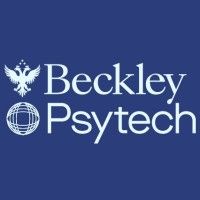预约演示
更新于:2025-05-07
SUNCT Syndrome
SUNCT综合征
更新于:2025-05-07
基本信息
别名 SUNCT (short-lasting unilateral neuralgiform headache attacks with conjunctival injection and tearing) syndrome、SUNCT Syndrome、SUNCT Syndromes + [13] |
简介 A primary headache disorder that is characterized by frequent short-lasting, unilateral, neuralgiform pain attacks in the ocular area, with CONJUNCTIVA fluid-filling and tearing. SUNCT syndrome is usually resistant to treatment. |
关联
1
项与 SUNCT综合征 相关的药物作用机制 5-HT1A receptor拮抗剂 [+3] |
原研机构- |
最高研发阶段临床3期 |
首次获批国家/地区- |
首次获批日期1800-01-20 |
5
项与 SUNCT综合征 相关的临床试验ChiCTR2200062055
Short-lasting Unilateral Neuralgiform Headache Attacks Registry Study in Chinese Population
开始日期2022-08-01 |
申办/合作机构- |
TCTR20230409004
Effects of two different local 2% Mepivacaine hydrochloride injection techniques in pain control during Loop Electrosurgical Excision Procedure (LEEP): A randomized controlled trial
开始日期2022-06-13 |
NCT04905121
An Exploratory Open-Label, Phase 1b, Ascending Dose Study to Evaluate the Effects of Oral 3-[2-(Dimethylamino)Ethyl]-1h-indol-4-yl Dihydrogen Phosphate (Psilocybin, BPL-PSILO) on Cognition in Patients With Chronic Short-Lasting Unilateral Neuralgiform Headache Attacks (SUNHA)
This exploratory open-label phase 1b, ascending dose study is to evaluate the effects of psilocybin on cognition in patients with Chronic Short-Lasting Unilateral Neuralgiform Headache Attacks (SUNHA)
开始日期2021-08-11 |
申办/合作机构 |
100 项与 SUNCT综合征 相关的临床结果
登录后查看更多信息
100 项与 SUNCT综合征 相关的转化医学
登录后查看更多信息
0 项与 SUNCT综合征 相关的专利(医药)
登录后查看更多信息
392
项与 SUNCT综合征 相关的文献(医药)2025-05-13·Neurology
Pearls & Oy-sters: Late-Onset Presumed SUNA in a 91-Year-Old Woman With Headache
Article
作者: Gklinos, Panagiotis
2025-03-01·BMJ Case Reports
Onset of secondary SUNCT syndrome with concomitant occipital neuralgia after dorsal medullary infarction
Article
作者: AbaAlkhail, Ahmed B ; Gadah, Alya A ; Khatri, Ismail A
2024-12-01·eNeurologicalSci
World neurology updates: Other primary headache disorder – Treatment
Article
作者: Goadsby, Peter J ; Goadsby, Peter ; Marzoughi, Sina
1
项与 SUNCT综合征 相关的新闻(医药)2021-10-25
Oct. 25, 2021 06:00 UTC
Phase 1 trial is evaluating the safety and tolerability of a novel formulation of intranasal 5-MeO-DMT
Study will measure detailed pharmacokinetics and metabolism of 5-MeO-DMT in healthy volunteers
Preliminary data, expected H1 2022, to support Phase 2 study designs investigating the use of 5-MeO-DMT in treatment resistant depression (TRD) and other neuropsychiatric indications
OXFORD, England--(BUSINESS WIRE)-- Beckley Psytech, a private company dedicated to addressing neurological and psychiatric disorders through the novel application of psychedelic medicines, announced that the first cohort of volunteers has been dosed in a clinical trial exploring the safety of Beckley Psytech's novel formulation of intranasal 5-Methoxy-N,N-Dimethyltryptamine (5-MeO-DMT).
The Phase 1 study is designed as a double-blind, randomised, single ascending dose study to evaluate the safety and tolerability of a single intranasal dose of 5-MeO-DMT in psychedelic-naïve healthy subjects. This is the first clinical study to measure the pharmacokinetics and metabolism of 5-MeO-DMT delivered intranasally.
The study will recruit up to 42 participants (dependent on response) in 6 cohorts of 7 volunteers on increasing doses of 5-MeO-DMT. Blinded data from the study will be used to inform the planned Phase 2 study dose and design in H1 2022. The trial is being conducted as part of Beckley Psytech’s ongoing collaboration with King’s College London and is being led by Dr James Rucker.
James Rucker, Clinician Scientist and Principal Investigator of the study, the Institute of Psychiatry, Psychology & Neuroscience at King's College London, said: “We are pleased to be working with Beckley Psytech and to have initiated this study to evaluate the safety and tolerability of 5-MeO-DMT. TRD is a challenging condition to treat, and it is exciting to be exploring new treatment options that could have a positive impact on patients’ lives in the future.”
Cosmo Feilding Mellen, CEO of Beckley Psytech, said: “The start of this Phase 1 study is hugely exciting for Beckley Psytech and for our continued collaboration with Dr James Rucker and his team at King’s College London. This trial will provide invaluable information about our novel intranasal formulation of 5-MeO-DMT, and we are looking forward to the readout in 2022. Following this trial, we intend to initiate a Phase 2 study in TRD, a condition with a significant unmet medical need. This is another key milestone achieved on our path to deliver on our clinical pipeline.”
Phase 1 study overview
The Phase 1 study is a double-blind, randomized, single ascending dose trial, with psychedelic-naïve subjects. The study will enrol up to 42 volunteers to evaluate the safety, tolerability, and pharmacokinetics of single ascending intranasal doses of 5-MeO-DMT. The trial will also look to characterise the psychedelic experience of the subjects, with interviews carried out by a specialist.
More information about the trial is available on (NCT05032833)
Beckley Psytech -
Beckley Psytech is a clinical stage privately held company dedicated to helping patients suffering from neurological and psychiatric disorders by developing a broad pipeline of psychedelic compounds in rare and more common diseases. Our vision is for clinically validated psychedelic medicines to be integrated into modern medical practice in order to help patients with high unmet medical need around the world, suffering from Short-lasting unilateral neuralgiform headache attacks (SUNHA), treatment resistant depression and other profoundly debilitating conditions. Beckley Psytech was founded in 2019 leveraging some of the expertise developed over more than 20 years by the Beckley Foundation, an independent non-profit and world leader in psychedelic medicine research, and is based out of Oxford, United Kingdom.
分析
对领域进行一次全面的分析。
登录
或

Eureka LS:
全新生物医药AI Agent 覆盖科研全链路,让突破性发现快人一步
立即开始免费试用!
智慧芽新药情报库是智慧芽专为生命科学人士构建的基于AI的创新药情报平台,助您全方位提升您的研发与决策效率。
立即开始数据试用!
智慧芽新药库数据也通过智慧芽数据服务平台,以API或者数据包形式对外开放,助您更加充分利用智慧芽新药情报信息。
生物序列数据库
生物药研发创新
免费使用
化学结构数据库
小分子化药研发创新
免费使用

